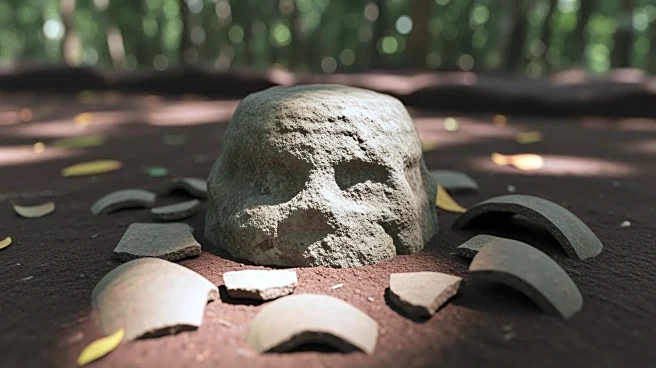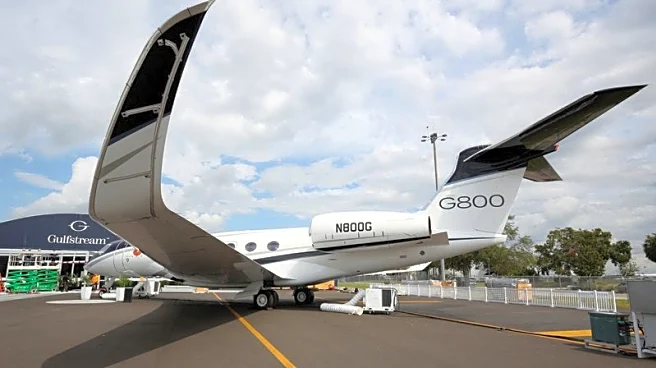What's Happening?
Recent archaeological findings on Mindoro, a Philippine island, suggest that humans settled and thrived there much earlier than previously believed. The research, conducted by scientists from Ateneo de Manila University and international experts, indicates
that early humans engaged in advanced seafaring and intercultural relations in maritime Southeast Asia during the Paleolithic era. The study involved exploring over 40 caves and rock shelters, revealing cultural and biological remains spanning approximately 35,000-40,000 years. These findings challenge the notion that complex seafaring developed later in human evolution, highlighting the Philippine archipelago's role as a central hub in ancient maritime networks.
Why It's Important?
This discovery has significant implications for understanding human migration and technological innovation in prehistoric times. It suggests that early humans possessed advanced maritime skills, allowing them to navigate and settle across islands, which contradicts previous assumptions about their capabilities during the Paleolithic era. The findings could reshape historical narratives about human civilization's development, emphasizing the importance of maritime Southeast Asia in early human history. This research also highlights the adaptability and resourcefulness of early humans in managing island life, which could inform current studies on human resilience and adaptation.
What's Next?
Further research is needed to explore the evolution of watercraft designs and fishing methods used by early humans in Mindoro. Scientists may conduct isotopic studies on shell and bone to understand environmental conditions during different periods. The study opens new questions about the logistics of island life and the technological advances required for seafaring. Continued exploration of archaeological sites in the region could provide more insights into the maritime networks and intercultural relations that shaped early human history.
Beyond the Headlines
The study challenges traditional views on the timeline of human civilization, suggesting that maritime skills were integral to early human development. It reframes the Philippine archipelago as a central setting for ancient maritime Southeast Asia, emphasizing the interconnectedness of island communities. This research could lead to a reevaluation of the role of islands in human history, highlighting their significance as active hubs rather than isolated outposts.
















